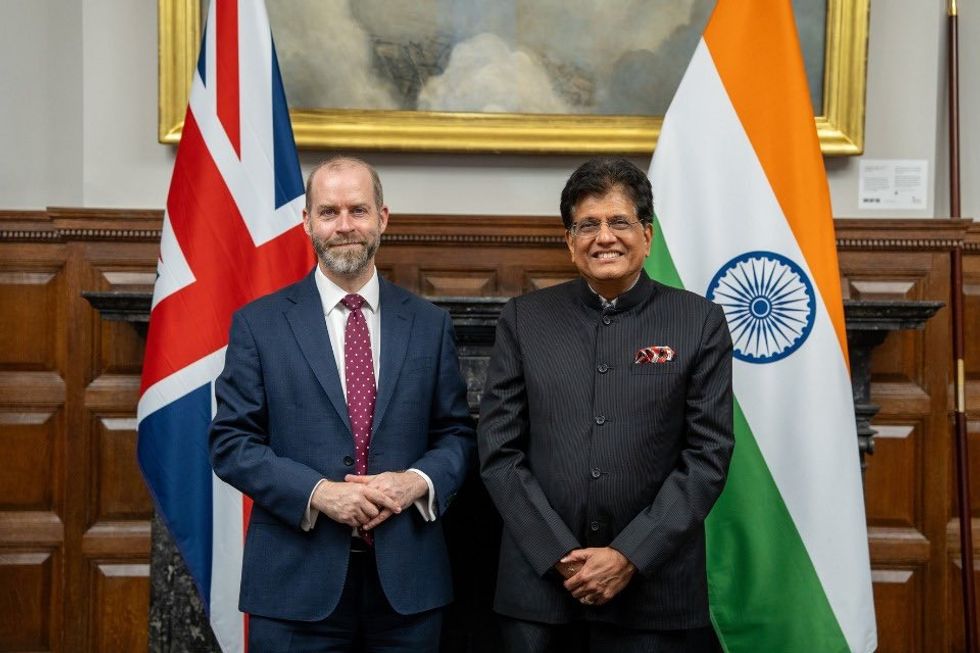Billionaire Mukesh Ambani today hit back at Bharti's Sunil Mittal for blaming his telecom venture Jio for the industry's losses, saying businesses must stop looking at regulators and governments to guarantee their profits.
Calling Mittal a "friend", he said profits and losses are risks businesses take and it is more important to find out if the country and the consumers gained after Jio.
Addressing the HT Leadership Summit, he said that after the entry of Jio, India has become the world's No.1 mobile broadband market, consuming more data than users in the US and China.
"For all of us in the industry, I think profits and losses are risks that we take. I don't think we can rely on governments and regulators to guarantee our profits or losses," Ambani maintained.
This was in response to a query on Mittal's reported comments -- who runs India's biggest telecom firm Bharti Airtel -- that all telecom companies had put together written down USD 40-50 billion of investments due to Jio's entry.
"To me, what is most important is did we move the country forward and does the consumer gain," Ambani said.
"The question... You should be thinking about is even if there are profits and losses, who gains and who loses. And as long as the consumer gains and the country moves forward, it is worth taking those losses... Some of us are big boys, we can afford that," he added.
A little over a year ago, Ambani, Chairman and MD of Reliance Industries, launched Jio, a new fourth-generation wireless service that disrupted the telecom industry by offering free calls and cheap data on mobile phones.
Older players such as Airtel and Vodafone were forced to cut tariff, but still continue to charge for voice calls and text messages, which are free on Jio.
This together with dirt cheap data has helped it attract 138 million users. According to Ambani, Jio is ahead of schedule on turning profitable.
"Jio results are declared every quarter now. You can see the trend. You watch the next few quarters. You will learn in January and you will learn in March," he replied to a question when will the telecom venture break even.
Not elaborating, he said, "I don't want to predict, but I think we are ahead of our schedule in terms of the returns that we are generating."
In the July-September quarter, Jio had reported a pre-tax profit of Rs 261 crore (billion), its first ever operating profit, on standalone revenue of about Rs 6,147 crore (billion).
But it had a net loss of Rs 270.5 crore for the three months to September.
Asked if competition motivates him, Ambani said, "Our DNA is that we are very focused. We always believe in the principle of saying that if you focus on the goal, you will overcome all obstacles. If you focus on the obstacles, you will never achieve your goal."
"At Reliance, we want to be the best in the world," he asserted. "I am sorry if it appears competitive."
The RIL chairman predicted that India will be ahead of the US in terms of data infrastructure by 2019.
"As we move forward, we think of more difficult issues that create value. Agriculture is difficult, education is important, and healthcare is most difficult and we will think about what we can do in each one of these areas," he added.
He also said money never meant much to him and he has never carried money since childhood, adding that "I have somebody around who pays for me".
Ambani, India's richest man, went on to say India was ranked 150th in the world for mobile broadband adoption, but "now, it is number 1, after the launch of Jio".
"Today, Indians consume more mobile broadband data than users in the USA and China," he said.
"If Data is Destiny, New India is well and truly ready for its new Tryst with Destiny."
India, Ambani suggested, can use digital technology to leapfrog in all sectors of the economy -- be it financial services, commerce, manufacturing, agriculture, education and healthcare.
"As Internet becomes accessible to all Indians, I believe we will be among the first to graduate to the Internet of Everything," he quipped

















 Piyush Goyal with shadow chancellor Rachel Reeves (centre), Vikram Doraiswami and other officials at the India Global Forum
Piyush Goyal with shadow chancellor Rachel Reeves (centre), Vikram Doraiswami and other officials at the India Global Forum And , Goyal with Jonathan Reynolds
And , Goyal with Jonathan Reynolds